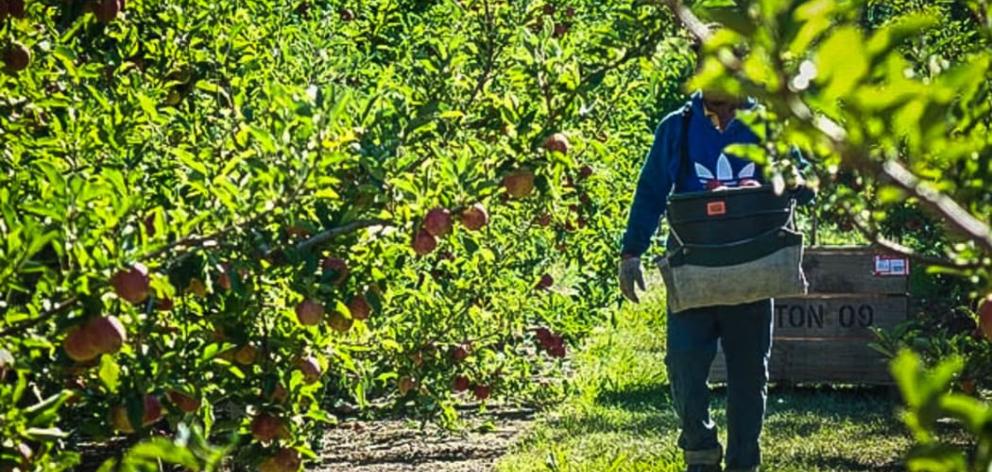Politics
Orchardists Push Back Against Claims of Worker Shortages

The horticulture industry in New Zealand is facing scrutiny after Prime Minister Christopher Luxon claimed the sector is “crying out” for young workers. He made these remarks during an interview on Morning Report, highlighting a government initiative that will require 18- or 19-year-olds to undergo means testing before accessing jobseeker benefits starting in November 2023. However, industry leaders are countering that the demand for labor is not as pressing as suggested.
While speaking about employment opportunities, Luxon pointed to regions outside of Wellington, specifically Hawke’s Bay and the South Island, asserting that the primary industries, including horticulture, need young people to fill roles. He emphasized the potential for jobseekers to find work in these sectors.
Contrary to the Prime Minister’s assertions, Paul Paynter, chief executive of the Yummy Fruit Company, which cultivates apples and stone fruit in Hawke’s Bay, stated that the industry is currently not in need of a large workforce. “We’re not crying out for staff at the moment,” he said, noting that while they will soon begin hiring a small number of seasonal workers for stone fruit thinning, this will only gradually increase through to the apple harvest season. Paynter mentioned that the workforce fluctuates, currently employing around 350 workers, with numbers peaking at approximately 680 in March.
Adding to the conversation, Michael Franks, chief executive of Seeka, the country’s largest kiwifruit grower, highlighted a lull in the employment cycle for his business. “Right at the moment in the kiwi fruit cycle, we’re nearing the end of shipping,” he explained. The slowdown in pack house activity is compounded by low volumes of avocados and citrus, limiting immediate job opportunities. Franks noted that while local labor is prioritized, the next significant hiring phase would not occur until March 2024.
The perspective of young job seekers like Seth Smedick, an 18-year-old student at Canterbury University, further complicates the narrative. Smedick has been searching for work since January, submitting around 100 job applications and securing only two interviews. He contributes modestly to his household while studying for a Bachelor of Science in biology, relying on his parents for financial support.
Smedick believes that many young people are reluctant to relocate to rural areas for seasonal jobs. “What a lot of older people don’t understand is that young people want to live where there are good social connections,” he stated. He expressed that the appeal of urban living often outweighs the benefits of working in the horticulture sector. Looking ahead, Smedick plans to move overseas after completing his studies, citing better job prospects in locations like Australia.
As the government emphasizes the importance of employment in the horticulture sector, industry leaders continue to clarify the current state of labor needs. With seasonal work opportunities on the horizon, the challenge remains to attract young workers to rural regions while addressing their preferences for urban living and stable employment.
-

 World1 week ago
World1 week agoPrivate Funeral Held for Dean Field and His Three Children
-

 Top Stories2 weeks ago
Top Stories2 weeks agoFuneral Planned for Field Siblings After Tragic House Fire
-

 Sports3 months ago
Sports3 months agoNetball New Zealand Stands Down Dame Noeline Taurua for Series
-

 Entertainment3 months ago
Entertainment3 months agoTributes Pour In for Lachlan Rofe, Reality Star, Dead at 47
-

 Entertainment2 months ago
Entertainment2 months agoNew ‘Maverick’ Chaser Joins Beat the Chasers Season Finale
-

 Sports3 months ago
Sports3 months agoSilver Ferns Legend Laura Langman Criticizes Team’s Attitude
-

 Sports1 month ago
Sports1 month agoEli Katoa Rushed to Hospital After Sideline Incident During Match
-

 World2 weeks ago
World2 weeks agoInvestigation Underway in Tragic Sanson House Fire Involving Family
-

 Politics2 months ago
Politics2 months agoNetball NZ Calls for Respect Amid Dame Taurua’s Standoff
-

 Top Stories2 weeks ago
Top Stories2 weeks agoShock and Grief Follow Tragic Family Deaths in New Zealand
-

 Entertainment3 months ago
Entertainment3 months agoKhloe Kardashian Embraces Innovative Stem Cell Therapy in Mexico
-

 World4 months ago
World4 months agoPolice Arrest Multiple Individuals During Funeral for Zain Taikato-Fox



















